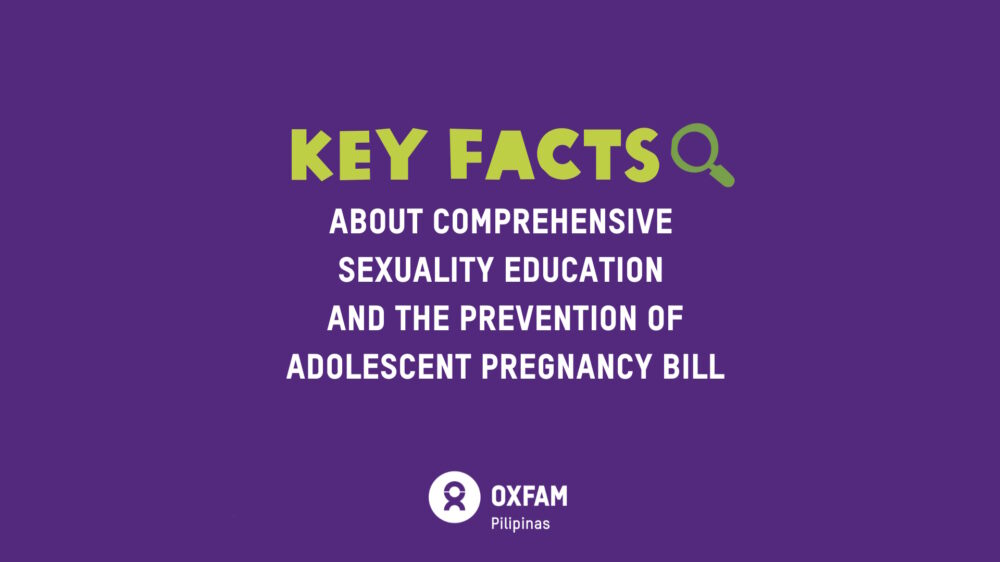Our Power To Act – Oxfam Pilipinas National Women’s Month Celebration
Last March 10, 2025, Oxfam Pilipinas brought together advocates, policymakers, and community leaders for a powerful discussion on gender justice, sexual and reproductive health, and women’s rights in the Philippines. The event, themed “Personal to Powerful: Our Power to Act,” highlighted the urgent need to protect bodily autonomy and push back against rising threats to […]
We Save Lives
Feminist Local Humanitarian Leadership: Empowering Women as Drivers of Change in Emergencies
Judy Ann Reambonanza (middle) from Sentro para sa Ikauunlad ng Katutubong Agham at Teknolohiya (SIKAT), together with Mariphel Salgado (left) and Rechcin Concilles (right), proudly recalls and demonstrates how to apply knot-tying techniques to transport a person. This is part of the skills they acquired from the Water, Safety, Rescue, and Survival Techniques (WASAR) training.
We Promote Gender Justice
Don’t surrender to anti-rights movements — Oxfam Pilipinas, partners
Oxfam Pilipinas marked National Women’s Month on Monday with a call for urgent action to protect women’s rights, reproductive healthcare, and gender justice amid increasing local and global backlash against rights movements. Themed “Personal to Powerful: Our Power to Act,” the solidarity event brought together sexual health advocates, government agencies, and community leaders in Quezon […]
We Build Resilient Communities
The inequality of risk
Disasters are life-shattering, but their effects are not the same for everyone. They are true breaking points for people with low incomes and high levels of vulnerability.
We Promote Climate Justice
COP29: Why it matters to the Philippines
The Global North must #PayUp: Obligation, not a donation. As primary contributors to the climate crisis, the Global North and super-rich must pay up a hefty sum commensurate with the injustices and damages they have caused to the people and the planet.
Updates
NGOs, BARMM gov’t vow support for women entrepreneurs
Civil society, government, and private sector representatives concluded a learning exchange focused on enhancing women’s economic empowerment in the Bangsamoro Autonomous Region in Muslim Mindanao (BARMM) held February 18 to 19 in Davao City. Hosted by Oxfam and The Asia Foundation in partnership with the Bangsamoro Women Commission and supported by the Australian Government in […]
Oxfam Pilipinas kicks off project spotlighting value of care work in PH
Oxfam Pilipinas and its partners are calling on the government to prioritize care work—both paid and unpaid—through concrete measures. These include reducing the disproportionate burden of unpaid care work on women and girls and ensuring that paid care workers receive fair wages, equitable benefits, and safe working environments.
Lot Felizco is new Oxfam Pilipinas Executive Director
Oxfam Pilipinas is pleased to announce the appointment of Maria Rosario “Lot” Felizco, as its new Executive Director. Felizco has over 30 years of experience working in the development sector, and has served in various leadership roles in Oxfam, including as country director with Oxfam Great Britain, policy director with Oxfam Hong Kong, and most […]
Statement: The Prevention of Adolescent Pregnancy Bill and science-based Comprehensive Sexuality Education will empower Filipino youth
Oxfam Pilipinas, together with the Office of Senator Risa Hontiveros, various civil society organizations, and child rights advocates, strongly supports the passage of the Prevention of Adolescent Pregnancy Bill and the implementation of Comprehensive Sexuality Education (CSE).







